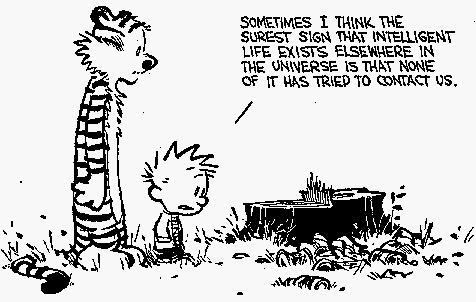At a recent holiday gathering I briefly found myself in the company of a precocious 9-year-old, a child I’ve known for quite some time now and who – along with her parents – I admire quite a lot.This little girl provided me with the best 15 minutes of conversation I’ve enjoyed in years – conversation almost impossible to find in adults due to our concretized scripts about who and what we are. Adults are so busy posturing for the consumption of others they have no time to expose the soft underbelly of their ignorance and fear (the latter, of course, being precisely the thing that prompts the need for all that egoic storytelling in the first place).
In a nutshell, this child spontaneously confessed to me that she was spending a lot of time pondering god, her place in the universe, whether or not she mattered (and, if she did, why), and that the whole process left her confused and at times not particularly happy.
As you might imagine, I loved it. At a time of year when the rest of us once again are trotting out ‘resolutions’ to improve some part of ourselves, this little girl was acknowledging that she wasn’t sure who or what it is that she is – never mind ‘improving’ upon it.
(Imagine, for a moment, a world where most of its human occupants forged resolutions that, in essence, acknowledged their wholesale ignorance of, well, everything, and committed to New Year’s resolutions focused only on “knowing what I am.”)
In the Gospel of Thomas – one of the ‘hidden’ gospels the early Christian fathers didn’t want anyone to read – Jesus urges anyone who will listen to turn within and seek the Truth. When you find it, Jesus cautioned, “you will be disturbed.” Elaine Pagels of ‘Gnostic Gospels’ fame surmises that those early Christian leaders didn’t want that kind of thinking spreading because it usurped their own authority – took away their middleman role between us mere mortals and god.
Fortunately for them, the mental chalkboards of little girls and boys aren’t yet cluttered with the collected musings and pronouncements of their parents, teachers, peers, and an at-large world eager for them to ‘fit in.’ Their minds aren’t locked into place yet, so they roam freely, question anything and everything.
A child loses a game and is excited about ice cream. Her parents are still fuming about the poor officiating. A child questions the insanity of pointing nuclear weapons at other countries. His parents explain the intricacies of the doctrine on Mutually Assured Destruction.
When I pressed my little friend on where she stood with things, if she’d worked her way to any conclusions yet, her response was just damned refreshing: “They’re just more words, but they don’t really mean anything.” And then, while my mouth was still hanging open, she asked me if I had any thoughts on the matter (ha ha ha).
“My words,” I said, “are just more words, aren’t they?”
She nodded.
“So let us say that you imagined me to be the smartest human who ever lived, and I held up a tangerine and said, ‘This is god.’ Now, you might believe it, at least temporarily. But some part of you would always doubt, because YOU don’t know it – not really. It’s just the words of someone else, right?”
“Right,” she said. And then she confessed that the whole process often left her confused and in that confusion lay unhappiness, worry, concern. Again, she was questioning the edifices of knowledge the rest of the world was attempting to shove into her brain (all under the auspices, of course, of making her ‘happy’ and ‘productive’ and ‘successful’ and so on). “So what should I do?”
I looked at that little girl and remembered a little boy asking those same questions many, many years earlier when the adults around me were too lost in their mental scripts to really hear or understand.
“Keep looking.”




